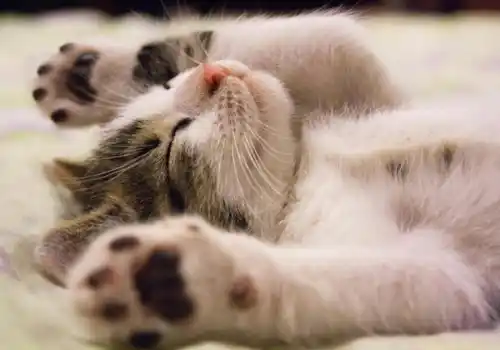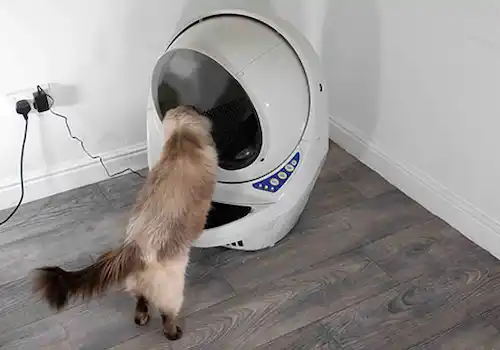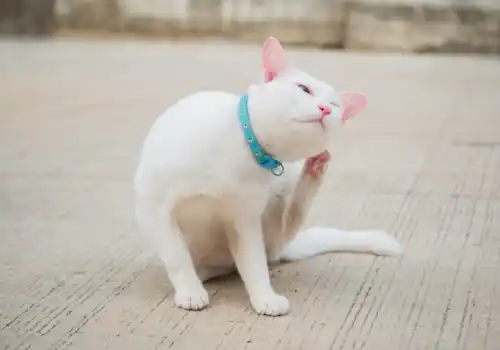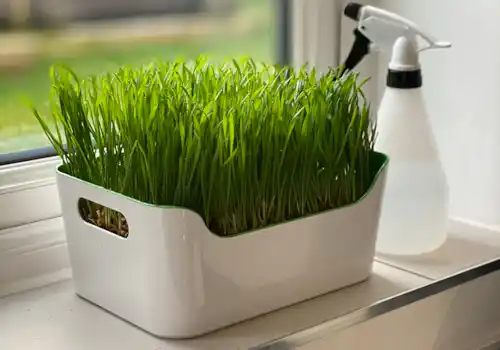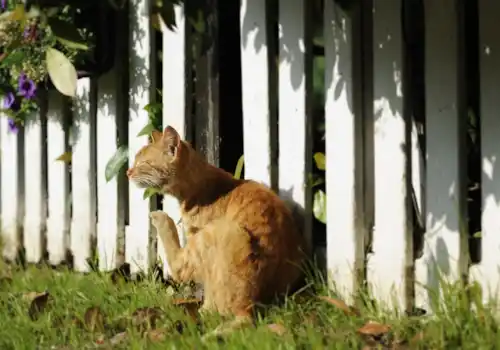Lots of cat owners have problems with other people's cats. We find out how to deal with cat bullies and intruders.
In 2013, Your Cat magazine ran an online survey to gain a snapshot of our cats' everyday lives so that we could take a view on neighbourhood issues. The results give us a fascinating insight into the real world of cats but also provide a clear idea of the problems that many of you face.
A large proportion of owners have significant problems with other people's cats. A third of owners whose cats have freedom to come and go told us they have issues with their neighbours' pets, in particular with cat fights, intimidation and entering their homes. Around the same amount have had to pay for veterinary treatment for their own cat's wounds and abscesses caused in battles fought tooth and claw.
Leading veterinary behaviourist, Jon Bowen, who devised and analyzed the survey, discovered that 16 per cent of households had a more severe pattern of problems than the rest. Here neighbourhood cats were making it hard for resident cats to go outside - many reported that their cats were being chased back into the house. What set these households apart was a higher population of cats; gardens were more frequently visited by a greater number of cats.
"It appears that the frequency of seeing other people's cats in the garden is particularly important: households where neighbourhood cats were most problematic saw cats at least a couple of times each week, and saw three or more different cats regularly coming to their garden," Jon says.
Why do other cats come into my home?
- 25% say cats are looking for food
- 21% say cats want attention
- 21% say cats are seeking shelter
- 18% say cats are intent on fighting
Cats are curious by nature and some extroverts simply enjoy visiting neighbours. A lucky few are welcomed and cause no problem. Others cause a nuisance, stealing food, spray marking and fighting.
Our survey reveals that food is the most likely reason for battles and home invasion. "This is a very important finding," says Jon. "There is a very strong link between cats coming into the home to get food, and coming in to fight with resident cats."
The most obvious potential solution is round-the-clock access to food. Jon explains: "Cats only have small stomachs and they are programmed to eat ten to 20 times a day. Our survey shows that only 40 to 45 per cent of cats are fed ad-lib, while the rest are fed two meals a day or on demand.
"Cats that are not fed ad-lib will feel hungry between meals and are driven to find food anywhere they can, even if that means breaking into another cat's home. The solution is that all cat owners feed their cats ad-lib, ensuring that the food-orientated cats get what they need at home and are not motivated to go searching for food."
How can I stop other cats coming into my home?
As the saying goes, prevention is better than cure, so our advice is to not interact with cats that come into your garden. Even if they're friendly, it's best not to encourage them and certainly do not offer food as otherwise they'll return and potentially cause problems for your own cat.
- Move food away from the cat flap so cats are not tempted in by the sight of a food bowl.
- Be wary of allowing your cat access to your home via an open window as other cats will follow suit.
- Upgrade your cat flap - quick and crafty cats have even been known to 'tailgate' following a cat into his home via an ordinary cat flap.
Our survey shows that owners who used a secure cat flap had significantly fewer problems with cats entering the home to steal food. Jon emphasizes: "The best way forward is prevention - owners should get their cats microchipped and install a secure flap. This prevents neighbourhood cats from establishing a routine of home invasion for food. Cats are very persistent and can be hard to discourage once they have started invading."
Of course, a further benefit to a good cat flap is that it can be set to limit access at certain times of day - enabling any keen hunters to be kept in when birds are most active in the garden at dawn and dusk.
Why does my cat spend time away from home?
If your cat has been spending more time away from home, take a look at why this might be. Have there been changes in your household - a new baby, someone new has moved in, or the introduction of another cat? Disturbances, even temporary ones like redecorating or building work, can mean a cat seeks out a new territory or attention elsewhere.

